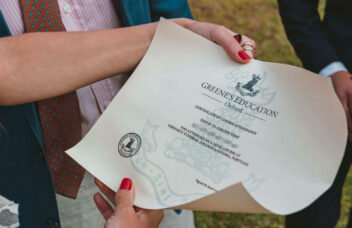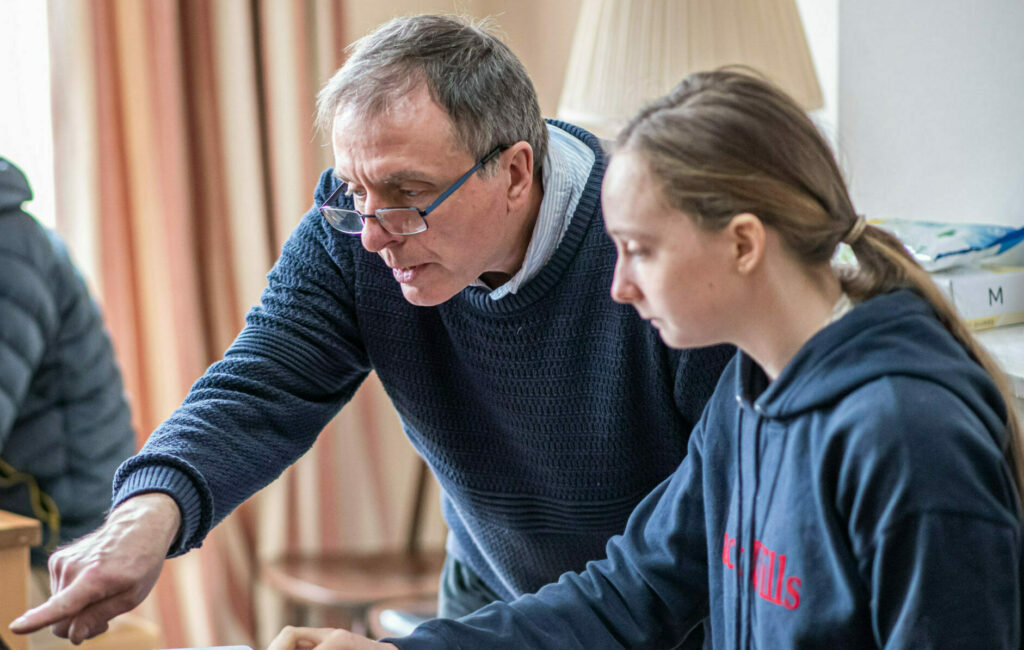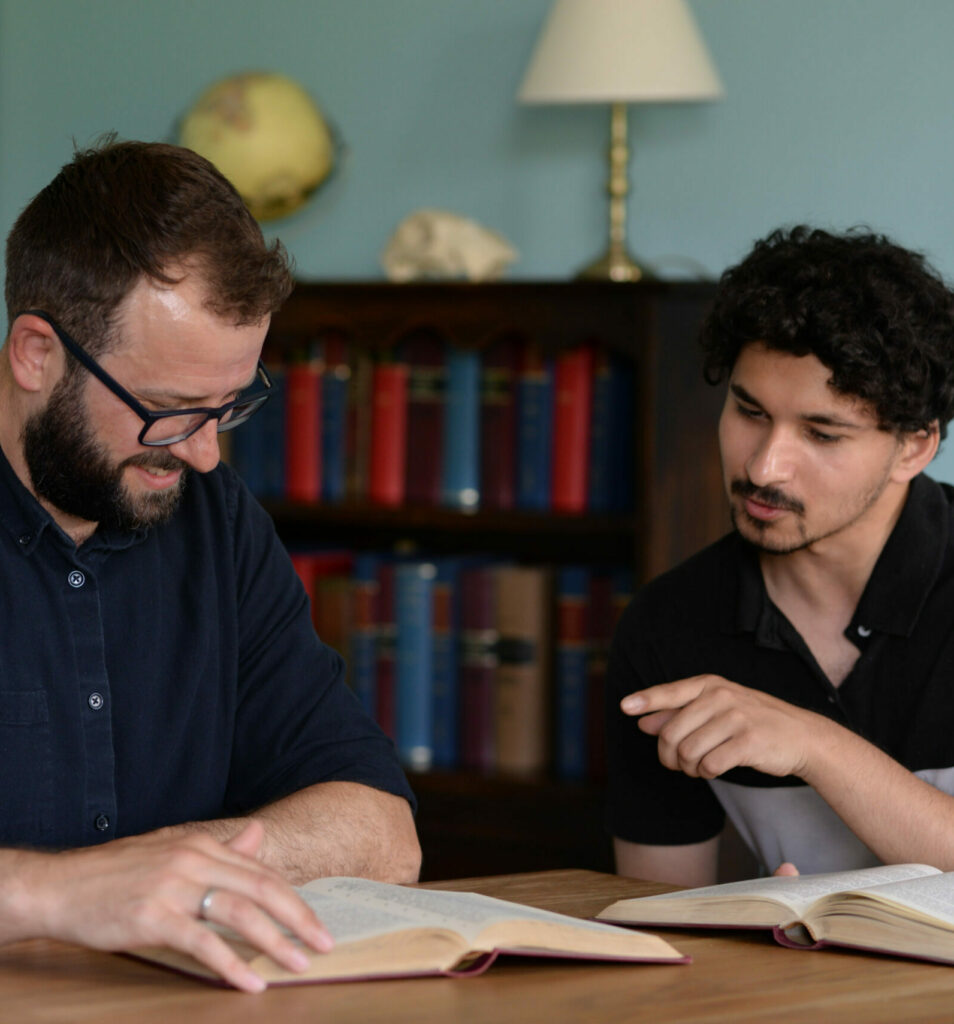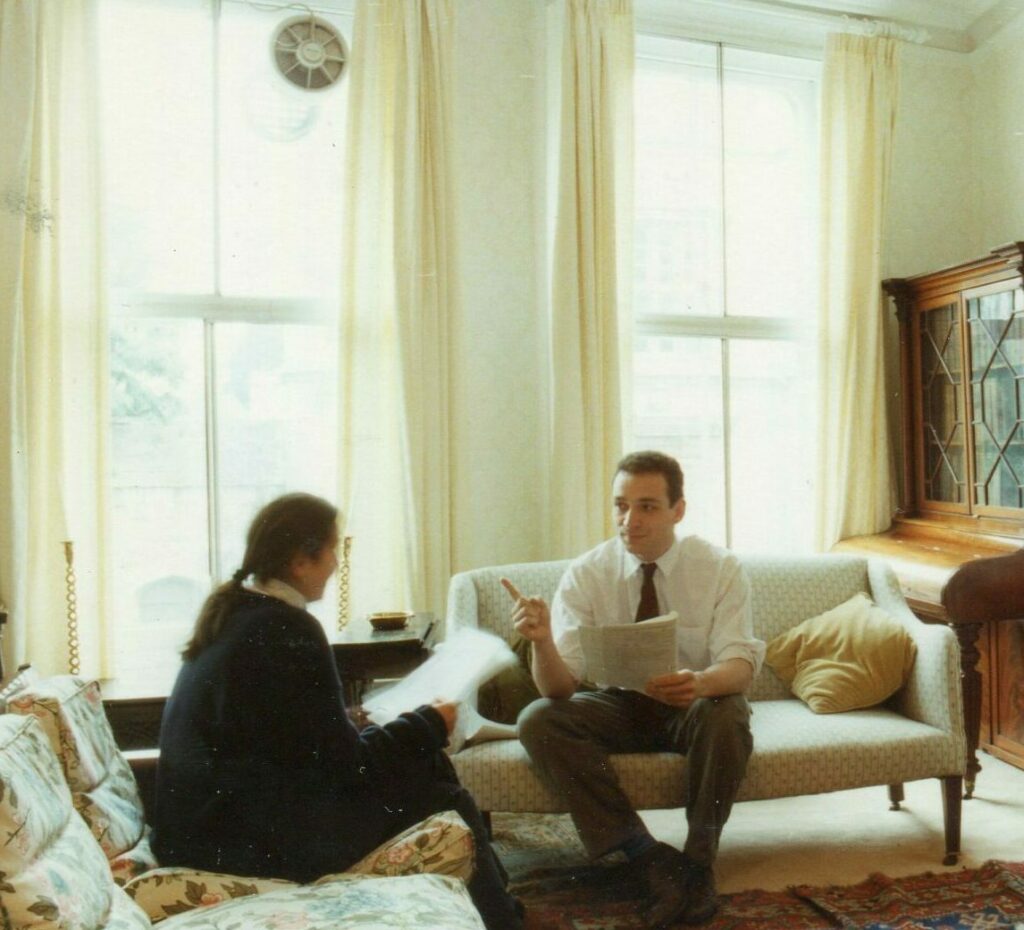


The tutorial method of learning: A levels that prepare you for university life.
At Greene’s College Oxford, we instil in our students the capacity for independent thinking and a life-long passion for learning throughout their sixth form studies, before they go to university. But rather than a radical re-imagining of education, Greene’s has relied on a time-tested pedagogy, rooted in the Socratic method, that we have been successfully applying for over 55 years.

This style of learning is defined by small group or paired tuition, taught in the Socratic method, with an emphasis on independent study. It allows us to work with you as an individual and support you in cultivating your confidence, critical thinking, ability to work with others, effective oral and written communication and independent learning skills. These skills will prepare you for the transition from A levels to university life.
A tutorial session itself can take the shape of a debate on aspects of literature, collaborative microscopy work, an analysis of a mathematical problem, a discussion of philosophical thought—and many other forms. One of the core benefits of the tutorial method is that tutorials can be individualised to each student and are shaped by the lively exchange of ideas between a unique pairing of tutor and tutee. Assuming students come well-prepared, these sessions encourage students to discover—literally to un-cover—truths that are waiting to be revealed by their own unique intellect. There is no telling what the course or outcome of the discussion will be.

Greene’s has a long history of academic excellence. Since 2020, 50% of all grades awarded to Greene’s students have been A* or A grades. As a non-selective college we expect our A level examination results to track the national average of the number and proportion of students achieving particular A level grades for the U.K. However, students who have taken tuition at Greene’s in the last academic year (2022-23) have gone on to achieve above the national average in A* and A grades – 45% of grades at Greene’s are A* or A grades.
In 2023, a full-time online student achieved the highest mark in the U.K. for the AQA AS level Geography examination series – whether you study online or face to face, learning at Greene’s sticks.

Learning is not only about memorising, practising, and examinations. It is also about the ability to reason, debate, and think independently – all attributes that need to be developed for future success at university and in the workplace. Development of these abilities requires you to be challenged through discussion, debate and direct contact with a tutor.
In today’s world, information is more freely available and accessible than ever before and we believe that our Greene’s method of learning, which focuses on the processing of concepts, ideas and knowledge through discussion, is more relevant than ever before.
Often at school you are taught in a group then given homework to practise and consolidate what you have learnt. In a tutorial environment you will first study independently by reading, problem solving, working with your colleagues, working on projects, attending talks and completing assignments. You should then expect to be challenged to think and discuss your work with your tutor.
The tutorial method is most successful when both you and your tutors meet a number of conditions:
Create your personal prospectus by selecting your interests.
This link will take you to Greene’s International
Proceed